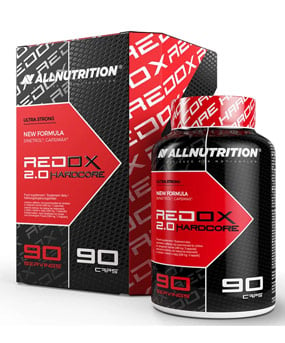Ale.....
na dluzsza mete poziom testosteronu i tak lepiej wyglada u ludzi wytrenowanych niz u niewytrenowanych:
Effect of prolonged exercise of serum testosterone levels in adult men.
The purpose of the study was to: 1) identify the differences in serum testosterone levels among four groups of adult men differentiated on the basis of physical fitness and age, and 2) determine the effect of a four-month physical fitness programme consisting of running, calisthenics and recreational activities on the serum testosterone levels of the four groups. The groups were designated: high-fit, young aged about 32 (n = 7); high-fit, old aged about 52 (n = 7); low-fit, young (n = 7), and low-fit, old (n = 7). The subjects were selected and grouped according to physical fitness scores obtained using the regression equation of Ismail et al. Serum testosterone was determined by a radioimmunoassay method. The pre-test ANOVA revealed that the high-fit groups had a significantly (p less than .01) higher testosterone level (754.29 ng/100 ml) than the low-fit groups (548.07 ng/100 ml) and the high-fit, young group (925.01 ng/100 ml) was significantly (p less than .01) higher than the other three groups. Post-test values were adjusted using pre-test testosterone values as covariates. No significant differences among the groups were found indicating that the serum testosterone levels were the same regardless of different ages and fitness levels. The findings were discussed in light of physiological, biochemical and psychological factors.
http://bjsm.bmj.com/content/10/4/230.abstract
porownano po okresie 4 miesiecy 4 grupy :
-wytrenowane mlode osoby
-wytrenowane starsze osoby
-niewytrenowane mlode osoby
-niewytrenowane starsze osoby
wnioski:
wytrenowane osoby mialy wyzszy poziom testosteronu niz ich opowiednicy nie trenujacy (754.29 vs 548.07 ng/100 ml)
-jak rowniez wytrenowana grupa osob mlodych miala najwyzszy poizom testosteronu (925.01 ng/100 ml)
Wplyw samego cynku - mega dawek!
The effect of exhaustion exercise on thyroid hormones and testosterone levels of elite athletes receiving oral zinc.
The present study aims to investigate how exhaustion exercise affects thyroid hormones and testosterone levels in elite athletes who are supplemented with oral zinc sulfate for 4 weeks.
METHODS:
The study included 10 male wrestlers, who had been licensed wrestlers for at least 6 years. Mean age of the wrestlers who volunteered in the study was 18.70 +/- 2.4 years. All subjects were supplemented with oral zinc sulfate (3 mg/kg/day) for 4 weeks in addition to their normal diet. Thyroid hormone and testosterone levels of all subjects were determined as resting and exhaustion before and after zinc supplementation.
RESULTS:
Resting TT3, TT4, FT3, FT4 and TSH levels of subjects were higher than the parameters measured after exhaustion exercise before zinc supplementation (p<0.05). Both resting and exhaustion TT3, TT4 and FT3 values after 4-week zinc supplementation were found significantly higher than both of the parameters (resting and exhaustion) measured before zinc supplementation (p<0.05). Resting total testosterone and free testosterone levels before zinc supplementation were significantly higher than exhaustion levels before zinc supplementation (p<0.05). Both resting and exhaustion total and free testosterone levels following 4-week zinc supplementation were found significantly higher than the levels (both resting and exhaustion) measured before zinc supplementation (p<0.05).
CONCLUSION:
Findings of our study demonstrate that exhaustion exercise led to a significant inhibition of both thyroid hormones and testosterone concentrations, but that 4-week zinc supplementation prevented this inhibition in wrestlers. In conclusion, physiological doses of zinc administration may benefit performance.
http://www.ncbi.nlm.nih.gov/pubmed/16648789
10 wrestlerom w wieku ~18lat podawano 3mg cynku na kgmc (100kg osobnik =300mg cynku!) prez okres 4 tygodni
efekty:

poziom testosteronu przed suplementacja cynkiem (w fazie spoczynku/w stanie 'wyczerpania'(po treningu)):
516,20/428,70 ng/dl
poziom testosteronu po suplemnetacji cynkiem (w fazie spoczynku/w stanie 'wyczerpania'(po treningu)):
738,00/735,30 ng/gl
poziom wolnego testosteronu przed suplementacja cynkiem (w fazie spoczynku/w stanie 'wyczerpania'(po treningu)):
25,15/20,02 pg/ml
poziom wolnego testosteronu po suplemnetacji cynkiem (w fazie spoczynku/w stanie 'wyczerpania'(po treningu)):
34,93/32,45 pg/ml
suplementacja cynkiem w mega ilosciach skutkowala podniesieniem zarowno calkowitego poziomu testosteronu jak i testosteronu wolnego
jak rowniez ograniczyla spadek jego poziomu po treningu!
********************************************
W miare uplywu lat mezczyzni produkuja mnije testosteronu.
Zwykle uznaje sie ze taka granica jest 40-50lat
Ale czasem bywa tak ze ludzie przed 40-tka maja poziom testosteronu na poziomie nie wiekszym niz 300ng/dl, a moze niektorzy z Waszych dziadkow maja i na poziomie 700-800 ng/dl (czyli jak mlody mezczyzna).
Z tym że tężenie testosteronu całkowitego zmienia się powoli (czasami nawet nieznacznie) a stężenie testosteronu wolnego obniża się czasami bardzo szybko.
Testosteron calkowity = testosteron wolny + testosteron związany z bialkami
Może być związany z albuminą (białkiem surowicy) lub też ze specyficznym białkiem zwanym globuliną wiążącą steroidy płciowe (SSBG) lub globuliną wiążącą hormony płciowe (SHBG).
Testosteron związany z białkami jest już praktycznie wykorzystany i nie wykonuje żadnych zadań.
Z kolei wiązanie testosteronu z albuminą nie jest wiązaniem silnym i jest ono łatwo odwracalne, dlatego też określenie biodostępny testosteron (BAT) odnosi się do sumy "wolnego" testosteronu i testosteronu związanego z albuminą.
Okolo 60% testosteronu jest w formie związanej z SHBG, pozostała część jest związana z albuminą (~40%)
a jedynie około 2% testosteronu występuje jako tzw. wolny testosteron, który jest najbardziej dostępny dla komórek.
Poniewaz tylko wolny testosteron charakteryzuje się całkowita dostępnością biologiczną i ma znaczący wpływ na nasz organizm.
Im wyższe stężenie SHGB we krwi, tym mniej testosteronu może oddziaływać na nasze komórki.
Stężenie SHBG w krążeniu zależy od wieku i płci oraz natężenia syntezy testosteronu i estrogenów.
Zmiany stężenia SHBG wywierają istotny wpływ na stężenie biodostępnego testosteronu.
Badania oznaczające stężenie całkowitego testosteronu odzwierciedla ilość związanego i wolnego hormonu.
********************************************
Effect of fatiguing bicycle exercise on thyroid hormone and testosterone levels in sedentary males supplemented with oral zinc.
The aim of this study was to determine how exercise affects thyroid hormones and testosterone levels in sedentary men receiving oral zinc for 4 weeks.
METHODS:
The study included 10 volunteers (mean age, 19.47+/-1.7 years) who did not exercise. All subjects received supplements of oral zinc sulfate (3 mg/kg/day) for 4 weeks and their normal diets. The thyroid hormone and testosterone levels of all subjects were determined at rest and after bicycle exercise before and after zinc supplementation.
RESULTS:
TT3, TT4, FT3, and total and free testosterone levels decreased after exercise compared to resting levels before supplementation (p<0.01). Both the resting and fatigue hormone values were higher after 4 weeks of supplementation than the resting and fatigue values before supplementation (p<0.05).
CONCLUSION:
The results indicate that exercise decreases thyroid hormones and testosterone in sedentary men; however, zinc supplementation prevents this decrease. Administration of a physiologic dose of zinc can be beneficial to performance.
http://www.ncbi.nlm.nih.gov/pubmed/17984944
badano wplyw na 10 osob (nie uprawiajacych czynnie sport) przez okres 4 tygodni stosowanie cynku w ilosci 3mg/kgmc
kazanie im jechac na rowerze
sparwdzano poziom przed jazda i po jezdzie
wyniki:

poziom testosteronu przed suplementacja cynkiem (w fazie spoczynku/w stanie 'wyczerpania'(po treningu)):
657,10/612,90ng/dl
poziom testosteronu po suplemnetacji cynkiem (w fazie spoczynku/w stanie 'wyczerpania'(po treningu)):
756,20/749,75 ng/gl
poziom wolnego testosteronu przed suplementacja cynkiem (w fazie spoczynku/w stanie 'wyczerpania'(po treningu)):
21,95/16,57 pg/ml
poziom wolnego testosteronu po suplemnetacji cynkiem (w fazie spoczynku/w stanie 'wyczerpania'(po treningu)):
32,04/33,50 pg/ml
wnioski jak wyzej
suplementacja cynkiem w mega ilosci (3mg/kgmc) skutkowala podniesieniem zarowno poziomu calkowitego testosteronu jak i testosteronu wolnego
jak rowniez ograniczyla spadek jego poziomu po treningu!
Ale zeby nie bylo tak kolorowo - aby nikomu nie wpadlo do glowy spozywac 200-300mg cynku przez dlugi okres czsasu.
[Effects of high level Zn intake on metabolism in man].
40 rural healthy men were chosen and tablets of 50 mg Zn (as 0.2 g of zinc glucose) per day was taken by them for eight weeks. All subjects were checked up for five times: at week 0, 2, 4, 8 during the period of Zn supplementation and at week 12 and their serum, RBC, hair, and 24h-urine were collected for assays at the same time.
RESULTS:
(1) Zn contents in serum, RBC and hair increased significantly after 2 to 4 weeks supplementation and decreased at 4 weeks after stopping supplementation, but they were still higher than those before supplementation. Zn contents in 24h-urine increased significantly after supplementation and decreased at 4 weeks after stopping supplementation to the same level as before supplementation. (2) Cu contents in serum, RBC and hair increased significantly after 4 weeks supplementation and decreased at 4 weeks after stopping supplementation. Cu contents in 24h-urine did not change significantly during experiment. (3) RBC superoxide dismutase (SOD) activities were decreased persistently after 2 weeks supplementation and were not recovered at 4 weeks after stopping supplementation. RBC glutathione peroxidase (GPX) activities increased significantly after 4 weeks supplementation. The content of lipid peroxide (LPO) increased significantly after 2 weeks supplementation. (4) Total cholesterol (TC), triglyceride (TG), Low density lipoprotein cholesterol (LDL-C) and apolipoprotein B100 (ApoB100) increased significantly, high density lipoprotein cholesterol (HLD-C) and apolipoprotein A1 (ApoA1) decreased after supplementation.
CONCLUSION:
When healthy men received 50 mg Zn supplement per day, it might interfere Zn, Cu and lipids metabolism and inhibit antioxidation process.
http://www.ncbi.nlm.nih.gov/pubmed/15727190
40 mezczyzn spozywalo 50mg cunku przez okres 8 tygodni
wnioski:
-podwyzszony poziom LDL
-Podwyzszony poziom trojglicerydow
-Podwyzszony poziom cholesterolu
-obnizony poziom HDL
Suplemnetacja 50mg cynku moze ingerowac w metabolzim tluszczów jak rowniez dzialac hamujaco na antyoksydanty!
Zinc supplement use and risk of prostate cancer.
The high concentration of zinc in the prostate suggests that zinc may play a role in prostate health. We examined the association between supplemental zinc intake and prostate cancer risk among 46 974 U.S. men participating in the Health Professionals Follow-Up Study. During 14 years of follow-up from 1986 through 2000, 2901 new cases of prostate cancer were ascertained, of which 434 cases were diagnosed as advanced cancer. Supplemental zinc intake at doses of up to 100 mg/day was not associated with prostate cancer risk. However, compared with nonusers, men who consumed more than 100 mg/day of supplemental zinc had a relative risk of advanced prostate cancer of 2.29 (95% confidence interval = 1.06 to 4.95; P(trend) =.003), and men who took supplemental zinc for 10 or more years had a relative risk of 2.37 (95% confidence interval = 1.42 to 3.95; P(trend)<.001). Although we cannot rule out residual confounding by supplemental calcium intake or some unmeasured correlate of zinc supplement use, our findings, that chronic zinc oversupply may play a role in prostate carcinogenesis, warrant further investigation.
http://www.ncbi.nlm.nih.gov/pubmed/12837837
dlugotrwale (kilka lat) spozywanie cynku w ilosciach powyzej 100mg/dzien zwieksza ryzyko powstania raka prostaty!
Zmieniony przez - solaros w dniu 2011-05-29 05:01:30
"Cóż jest trucizną?
Wszystko jest trucizną i nic nie jest trucizną, tylko dawka czyni, że dana substancja nie jest trucizną!".
BLOG: http://www.sfd.pl/t1033576.html


 Krzysztof Piekarz
Krzysztof Piekarz

 .
.


